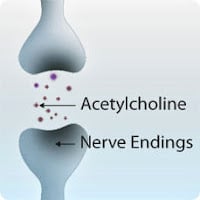A study involving nearly 27,000 older adults on five continents found that nearly 1 in 10 met criteria for pre-dementia based on a simple test that measures how fast people walk and whether they have cognitive complaints.
Dementia Books & Videos on Amazon:
FREE Newsletter:
People who tested positive for pre-dementia were twice as likely as others to develop dementia within 12 years.
The study, led by scientists at Albert Einstein College of Medicine of Yeshiva University and Montefiore Medical Center, was published in Neurology®, the medical journal of the American Academy of Neurology.
The test diagnoses motoric cognitive risk syndrome (MCR). Testing for the syndrome relies on measuring gait speed (our manner of walking) and asking a few simple questions about a patient’s cognitive abilities, both of which take just seconds.
The test is not reliant on the latest medical technology and can be done in a clinical setting, diagnosing people in the early stages of the dementia process. Early diagnosis is critical because it allows time to identify and possibly treat the underlying causes of the disease, which may delay or even prevent the onset of dementia in some cases.
“In many clinical and community settings, people don’t have access to the sophisticated tests—biomarker assays, cognitive tests or neuroimaging studies—used to diagnose people at risk for developing dementia,” said Joe Verghese, M.B.B.S. professor in the Saul R. Korey Department of Neurology and of medicine at Einstein, chief of geriatrics at Einstein and Montefiore, and senior author of the Neurology paper.
“Our assessment method could enable many more people to learn if they’re at risk for dementia, since it avoids the need for complex testing and doesn’t require that the test be administered by a neurologist.
“The potential payoff could be tremendous—not only for individuals and their families, but also in terms of healthcare savings for society. All that’s needed to assess MCR is a stopwatch and a few questions, so primary care physicians could easily incorporate it into examinations of their older patients.
“As a young researcher, I examined hundreds of patients and noticed that if an older person was walking slowly, there was a good chance that his cognitive tests were also abnormal,” said Dr. Verghese.
“This gave me the idea that perhaps we could use this simple clinical sign—how fast someone walks—to predict who would develop dementia. In a previous New England Journal of Medicine study, we reported that abnormal gait patterns accurately predict whether people will go on to develop dementia. MCR improves on the slow gait concept by evaluating not only patients’ gait speed but also whether they have cognitive complaints.”
The Neurology paper reported on the prevalence of MCR among 26,802 adults without dementia or disability aged 60 years and older enrolled in 22 studies in 17 countries. A significant number of adults—9.7 percent—met the criteria for MCR (i.e., abnormally slow gait and cognitive complaints). While the syndrome was equally common in men and women, highly educated people were less likely to test positive for MCR compared with less-educated individuals.
A slow gait, said Dr. Verghese, is a walking speed slower than about one meter per second, which is about 2.2 miles per hour (m.p.h.). Less than 0.6 meters per second (or 1.3 m.p.h.) is “clearly abnormal.”
To test whether MCR predicts future dementia, the researchers focused on four of the 22 studies that tested a total of 4,812 people for MCR and then evaluated them annually over an average follow-up period of 12 years to see which ones developed dementia. Those who met the criteria for MCR were nearly twice as likely to develop dementia over the following 12 years compared with people who did not.
Dr. Verghese emphasized, however, that a slow gait alone is not sufficient for a diagnosis of MCR.
“Walking slowly could be due to conditions such as arthritis or an inner ear problem that affects balance, which would not increase risk for dementia. To meet the criteria for MCR requires having a slow gait and cognitive problems. An example would be answering ‘yes’ to the question, ‘Do you think you have more memory problems than other people?'”
For patients meeting MCR criteria, said Dr. Verghese, the next step is to look for the causes of their slow gait and cognitive complaints. The search may reveal underlying—and controllable—problems.
“Evidence increasingly suggests that brain health is closely tied to cardiovascular health—meaning that treatable conditions such as hypertension, smoking, high cholesterol, obesity and diabetes can interfere with blood flow to the brain and thereby increase a person’s risk for developing Alzheimer’s and other dementias,” said Dr. Verghese.
What about people who meet MCR criteria but no treatable underlying problems can be found?
“Even in the absence of a specific cause, we know that most healthy lifestyle factors, such as exercising and eating healthier, have been shown to reduce the rate of cognitive decline,” said Dr. Verghese.
“In addition, our group has shown that cognitively stimulating activities playing board games, card games, reading, writing and also dancing—can delay dementia’s onset. Knowing they’re at high risk for dementia can also help people and their families make arrangements for the future, which is an aspect of MCR testing that I’ve found is very important in my own clinical practice.”
MORE INFORMATION:
The Neurology paper is titled “Motoric cognitive risk syndrome: Multi-country prevalence and dementia risk.” Other Einstein authors were Emmeline Ayers, M.P.H., Nir Barzilai, M.D., Roee Holtzer, Ph.D., and Cuiling Wang, Ph.D.
Other authors are Cedric Annweiler, M.D., and Olivier Beauchet, M.D., Ph.D., of Angers University Hospital, Angers, France; David A. Bennett, M.D., and Aron S. Buchman, M.D., of Rush University Medical Center,Chicago, IL; Stephanie A. Bridenbaugh, M.D., and Reto W. Kressig, M.D., of University of Basel, Basel, Switzerland; Michele L. Callisaya, Ph.D., and Velandai Srikanth, PhD., of Monash University, Clayton, Australia;Richard Camicioli, M.D., of University of Alberta, Edmonton, Canada; Benjamin Capistrant, Sc.D., of University of Minnesota, Minneapolis, MN; Somnath Chatterji, Ph.D., and Paul Kowal, M.D., of World Health Organization,Geneva, Switzerland; Anne-Marie De Cock, M.D., of University of Antwerp, Antwerp, Belgium; Luigi Ferrucci, M.D., of National Institute on Aging, Baltimore, MD; Nir Giladi, M.D., and Jeffrey M. Hausdorff, Ph.D., of Tel Aviv Sourasky Medical Center, Tel Aviv, Israel; Jack M. Guralnik, M.D., of University of Maryland School of Medicine,Baltimore, MD; Ki Woong Kim, M.D., and Jae-Young Lim, M.D., of Seoul National University Bundang Hospital,Seoul, South Korea; Susan Lord, Ph.D., and Lynn Rochester, Ph.D., of Newcastle University, Newcastle upon Tyne, United Kingdom; Kenichi Meguro, M.D., of Tohoku University Graduate School of Medicine, Sendai,Japan; Manuel Montero-Odasso, M.D., Ph.D., and Susan W. Muir-Hunter, Ph.D., of University of Western Ontario, London, Canada; and Mohan L. Noone, D.M., of Baby Memorial Hospital, Kozhikode, Kerala, India.
No funding was received for the study. The authors report no conflicts of interest.
SOURCE:











